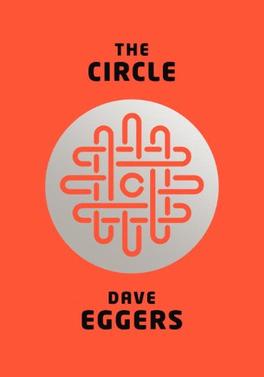
ALL THAT HAPPENS MUST BE KNOWN.
The rise of the internet has changed the way society works drastically since the new millennium. The way we purchase goods, entertain ourselves and find out what’s happening in the world is increasingly tied to our online lives. Sites like Facebook, Twitter and YouTube dominate how people interact and live their lives. At the end of last year Facebook had a staggering 1.86 billion monthly users, a number that has only gone up over the last ten years. For better or for worse, the internet is the genie in the bottle that can’t be resealed, so it’s not surprising that books have been written which question how we interact with technology.
Dave Eggers’ The Circle is the story of Mae Holland, a 24 year old who is just starting out at The Circle, a massive tech company that’s spread across a sprawling campus. Like most people, Mae sees The Circle as a vibrant, exciting company to work for that’s as much about enjoying life as it is work. Mae starts out in the customer service area, answering queries and trying to meet daily targets, but her enthusiasm and commitment to the social ecology of The Circle allow her to rise through the ranks. Mae gains more affluence, but as she sees more of The Circle, it becomes clear that the ambitions of the company go far beyond just providing products for customers. The Circle is working into all areas of public life, attempting to record all sorts of records and data, becoming an increasingly powerful entity. While The Circle appears progressive, there are questions about how much it is crossing over into people’s everyday lives.
The Circle offers a look into a widely recognised issue, how we’ve come to rely heavily on the internet and a few select organisations that hold that information. It’s hard not to see similarities between The Circle and companies like Google, especially given The Circle starts off simply offering a search engine and grows exponentially from there. Initially the company does seem like the fun, vibrant place that Mae dreams of, with it’s offices based on various historical periods, it’s many parties and performances and the social network that underpins The Circle.
However, the book does a good job of unnerving the reader throughout. Initially, it’s through small details, like the odd habits of Mae’s co-workers. At one point, Mae misses out on a barbeque hosted by a colleague, who reports her as a result of not engaging with the social side of the company. This small, unintentional infraction is a good example of how The Circle comes to expect it’s employees to devote themselves to the cause. In the early stages of the book it becomes clear that Mae’s usual work/life balance is going to be altered.
As the novel progresses we see how The Circle’s insistence on everything being recorded, known and shared comes to affect the wider world. Each innovation brought out by the company is dressed up as beneficial to the world, yet the sinister implications of everything becoming public are highlighted by the The Circle mantra:
SECRETS ARE LIES
SHARING IS CARING
PRIVACY IS THEFT
With the obvious allusion to 1984‘s famous quote ‘War is peace. Freedom is slavery. Ignorance is strength.’, it’s clear to the reader how the ambitions of The Circle threaten the world. Eggers has created the young, ambitious but fairly naive Mae to show how we can give over too much of ourselves to these large corporations, that in handing over so much information we increasingly put ourselves at risk. It’s fascinating to watch Mae throw herself over to The Circle more and more, even as the evidence of their reach becomes more obvious. Novels like 1984 and Brave New World feature protagonists who are unable to affect events but only end up getting caught up in them. In that respect, Mae is very much following that tradition.
Unfortunately, there are times when the message is driven home without any subtlety. Mae’s ex-boyfriend Mercer rejects the increasingly inter-connected world and despairs at seeing Mae becoming so passionate about The Circle. This leads to him making a series of fairly rambling speeches about the dangers of so much of people’s lives being revealed to the world. The book already does this in showing the excesses of The Circle, having a character simply explain the message that underpins the book feels less immersive. Other characters occasionally express doubt about The Circle, especially when it’s subversion of normal life becomes impossible to ignore later on, but I felt like Mercer is designed more to be the ‘voice of the opposition’, rather than to bring true depth to the story.
On the whole though, I found The Circle a fascinating novel that serves as a warning about the influence of the internet. In following the traditions of 1984 and Brave New World, Dave Eggers creates a memorable tale about surveillance and the social network. With a film adaptation starring Emma Watson and Tom Hanks coming later this year, I’d certainly recommend completing the circle before then!
